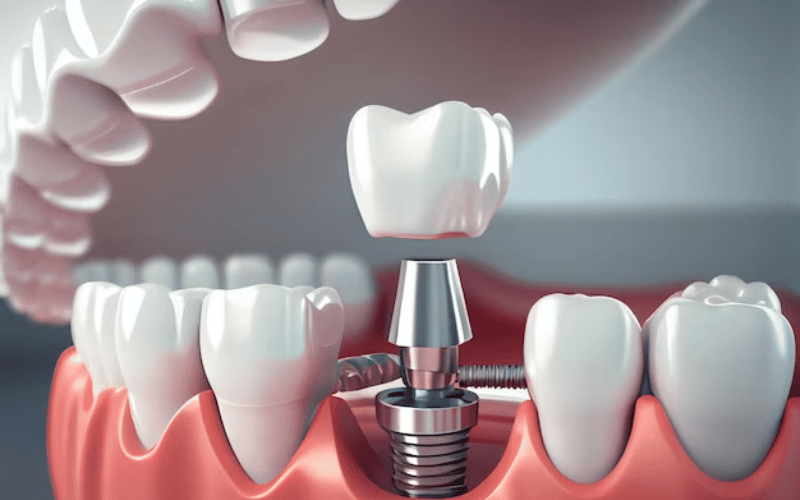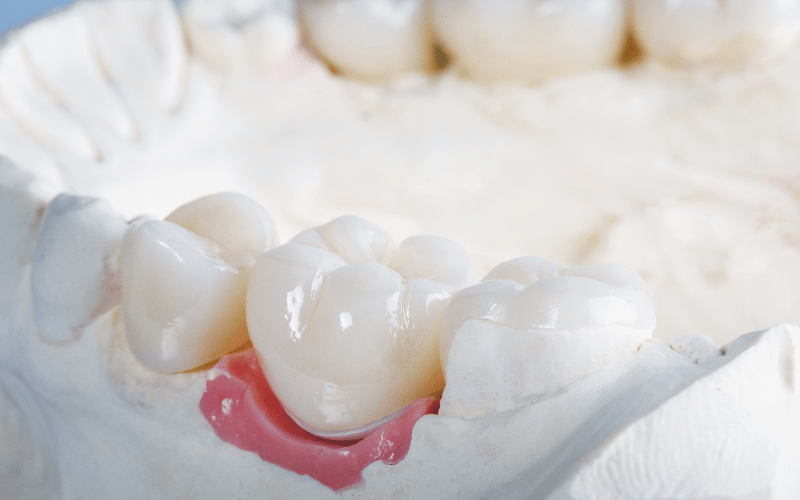Call: (810) 674-3060
Who Should Not Get Dental Implants?

Dental implants are permanent solutions for missing teeth, consisting of titanium posts surgically inserted into the jawbone. As artificial tooth roots, they support custom-made crowns, bridges, or dentures. This process, called osseointegration, ensures stability and durability.
Dental implants offer natural aesthetics and functionality, restoring bite strength and preventing bone loss in the jaw. They require proper oral hygiene and regular check-ups for long-term success.
Implants are versatile, suitable for single or multiple tooth replacements, and compatible with various dental conditions. Despite the initial investment and surgery, they provide a reliable, long-lasting solution for restoring smiles and improving oral health.
Benefits
1. Natural Appearance: Dental implants closely mimic the look and feel of natural teeth, providing a seamless aesthetic that enhances confidence and self-esteem.
2. Improved Functionality: Unlike traditional dentures, implants offer superior stability and chewing ability, allowing individuals to enjoy a varied diet without restrictions.
3. Preservation of Jawbone: By stimulating the jawbone like natural tooth roots, implants help prevent bone loss and maintain facial structure, promoting long-term oral health and facial aesthetics.
4. Durability and Longevity: Dental implants can last a lifetime with proper care, offering a reliable and permanent solution to missing teeth compared to other dental restorations.
5. Enhanced Oral Health: Unlike dental bridges that may require the alteration of adjacent teeth, implants preserve neighboring teeth, promoting better oral hygiene and reducing the risk of future dental issues.
Candidates for Dental Implants
1. Healthy Gums: Candidates for dental implants should have healthy gum tissues free from periodontal disease, as gum health is essential for the success of the implant procedure.
2. Adequate Bone Density: Sufficient jawbone density is necessary to support the implant securely. In cases of bone loss, bone grafting procedures may be required to augment the bone before implant placement.
3. Good Overall Health: Candidates should be in good general health, as certain medical conditions or medications may affect the success of the implant procedure. Conditions like uncontrolled diabetes or active cancer may require special consideration.
4. Non-smokers: Smoking can interfere with the healing process and increase the risk of implant failure. Candidates are encouraged to quit smoking before undergoing dental implant surgery for optimal outcomes.
5. Commitment to Oral Hygiene: Candidates should be committed to maintaining excellent oral hygiene habits, including regular brushing, flossing, and dental check-ups, to ensure the long-term success of their dental implants.
Who Should Not Get Dental Implants?
Dental implants may not be suitable for individuals with inadequate jawbone density, severe gum disease, or uncontrolled medical conditions like diabetes or cancer. Smokers face higher risks of implant failure due to compromised healing. Pregnant women are advised against dental implant procedures due to potential risks.
Additionally, adolescents whose jawbones are still developing may not be suitable candidates. Those unwilling to commit to strict oral hygiene practices or unable to undergo surgery may also not be ideal candidates.
Consulting with a dentist or oral surgeon is essential to assess individual suitability and address potential concerns before dental implant treatment.
Risks and Complications
1. Infection: Though rare, infection around the implant site can occur, leading to discomfort, swelling, and potential implant failure if left untreated.
2. Implant Failure: Factors such as inadequate bone integration, poor oral hygiene, or medical conditions may lead to implant failure, requiring removal and replacement.
3. Nerve or Tissue Damage: During implant placement, nearby nerves or tissues may sustain damage, resulting in numbness, tingling, or pain in the surrounding area.
4. Sinus Issues: Implants placed in the upper jaw may protrude into the sinus cavity, causing sinus problems such as congestion or sinusitis, especially if proper precautions are not taken.
5. Bone Loss: In rare cases, the surrounding bone may recede, compromising the stability and longevity of the implant and potentially necessitating additional procedures to address bone loss. Regular monitoring and proper aftercare can help mitigate these risks.
In conclusion, dental implants offer a transformative solution for missing teeth, restoring function and aesthetics. At Burton Family Dental, our team is dedicated to providing top-quality implant procedures tailored to each patient’s unique needs.
With meticulous care and attention to detail, we ensure optimal outcomes and long-term oral health. Ready to regain your confident smile? Schedule a consultation today and discover the life-changing benefits of dental implants in Burton. Don’t let missing teeth hold you back—unlock your best smile with Burton Family Dental!




